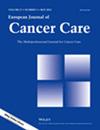The Moral Dimensions of Family Caregiving for Patients with Advanced Cancer: A Qualitative Study
Abstract
Background. Family caregivers in charge of patients with advanced cancer play an essential role. The psychosocial cost of these caregiving activities has been studied, and psychosocial interventions have been developed to improve the quality of life of family caregivers. A deeper understanding of caregivers’ burden is essential in order to enhance the benefits of these interventions. The aim of this study was to explore the socioeconomic and cultural factors responsible for shaping the complex personal experience of family caregiving and to analyse the moral dimensions of the caring experience so as to understand its effects on family caregivers more clearly. Materials and Methods. A qualitative study based on in-depth interviews was conducted with patients with advanced cancer (n = 20) and their family caregivers (n = 19) from 2017 to 2020. These interviews were analysed using an inductive approach and an iterative procedure. A thematic analysis was then performed using Tronto’s “ethic of care” framework in order to identify the various levels of responsibility and the relationships and effects involved. Results. Providing patients with advanced cancer with informal care is highly valuable work requiring various moral qualities, including attentiveness, responsibility, competence, and responsiveness. The mental load resulting from the moral aspects of care results from the cumulative effects of carers’ attentiveness and the responsibilities they have taken on. Conclusion. The present findings could guide healthcare professionals to develop best practice resources and guidelines in order to alleviate the hitherto underestimated effects of caring and promote a coordinated public health approach addressing the needs of caregivers. These efforts are particularly important as contemporary health policies tend to promote the shift from inpatient to outpatient treatment, which increases the importance of informal caregiving and the burden involved.


 求助内容:
求助内容: 应助结果提醒方式:
应助结果提醒方式:


